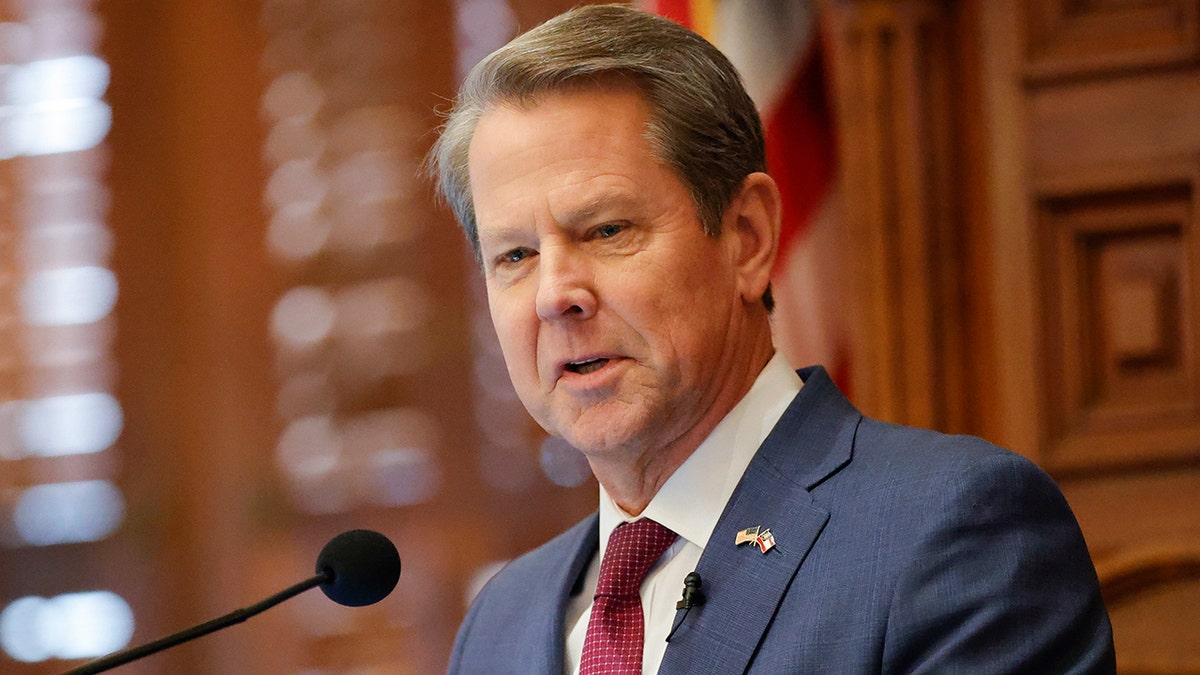Starting this Saturday, Georgia adults lacking health insurance have a new opportunity: secure employment or enroll in educational programs to gain state-funded healthcare coverage. This initiative, however, faces criticism from advocates who argue it's overly restrictive, costly, and pales in comparison to a comprehensive expansion of the Medicaid program.
This program holds significant national interest as Congressional Republicans advocate for work requirements for Medicaid beneficiaries. Madeline Guth, a senior policy analyst at the Kaiser Family Foundation, notes that while the Biden administration is unlikely to approve such requirements, a future Republican president might.
Georgia remains one of ten states that haven't expanded Medicaid eligibility to encompass individuals and families earning up to 138% of the federal poverty level. Governor Brian Kemp, a Republican, has opted for a more limited approach, extending coverage to adults earning up to 100% of the poverty line, contingent on them demonstrating 80 hours monthly of work, volunteering, studying, or vocational rehabilitation.
This strategy aligns with Kemp's efforts to distance his party from former President Trump and showcase tangible conservative achievements. He believes this approach offers more people coverage at a reduced cost with expanded patient choices. Those earning above the threshold remain eligible for subsidized coverage on the federal marketplace, which Kemp's administration prefers due to its higher provider reimbursement rates compared to Medicaid.

While the Trump administration allowed 13 states to impose Medicaid work requirements, the Biden administration reversed these waivers in 2021. Kemp's plan, however, survived a legal challenge due to its application to new enrollees rather than existing recipients. Department of Community Health Commissioner Caylee Noggle projects the program could cover up to 100,000 people in its first year, a figure significantly lower than the estimated 450,000 uninsured Georgians who could benefit from full Medicaid expansion, according to the Urban Institute.
Critics also question the funding allocated to the program – nearly $118 million in state funds and $229 million in federal funds – arguing it's insufficient to reach the projected enrollment. The Georgia Budget & Policy Institute estimates coverage for less than 50,000 individuals. Furthermore, Georgia will maintain its 34.2% cost share for the existing Medicaid program, forgoing additional federal funds allocated for expansion.
While Georgia officials argue that work and study improve health, healthcare providers counter that many uninsured individuals are unable to work due to pre-existing health conditions. Enrolling individuals in the new program is a priority, but eligibility requires a month of demonstrated compliance with the work requirement.
The Kemp administration expects the program to benefit low-wage workers and students who can't afford employer-sponsored insurance. The state is also reassessing the eligibility of 2.4 million current Medicaid recipients, delaying decisions for those potentially eligible for the Pathways program. Once enrolled, participants must maintain activity requirements or risk losing coverage. Georgia officials believe their simplified verification process will improve compliance, unlike Arkansas, where over 18,000 people lost coverage under similar requirements in 2018.
The success or failure of Kemp's approach in Georgia will be closely observed, as it could influence other states and Republicans seeking to implement Medicaid work requirements.








